Marcia Thornton Jones's Blog, page 113
August 14, 2018
The importance of classroom libraries, by Michele Weber Hurwitz
"A child sitting in a quiet room with a good book isn't a flashy or marketable teaching method. It just happens to be the only way one became a reader." -- Nancie Atwell, esteemed educator and author
I read this quote in a post on Nerdy Book Club by an elementary school principal in Michigan, Jim Bailey, who has made it a priority to have well-stocked libraries in each and every classroom. As we're talking about going back to school this month on Smack Dab -- and the often-asked question authors get when we visit -- where do you get your ideas? -- it struck me how Bailey's idea for getting books into classrooms is nothing short of brilliant.
Bailey felt there was a direct link between classroom libraries and reading motivation, reading achievement, and reading engagement, so he went through his budget line by line and asked himself, "Is this program or resource better at raising student achievement than putting a book in a student's hand? If the answer was no, then I had just found money to support classroom libraries."
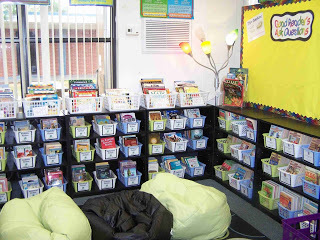
In fact, Bailey was able to find thousands of dollars in his budget by eliminating items such as purchasing the Accelerated Reader program and its prize incentives, as well as buying workbooks that he felt contained pages and pages of busy work. Then, at a staff training session prior to the first day of school, Bailey gave each teacher a $100 Barnes and Noble gift card to spend on books for their classroom (plus a $5 card for coffee), and the entire group took a field trip to B&N.
Several teachers cried, they were so excited, Bailey said, and many texted him photos of the books they were buying. He said that this decision completely changed the culture at his school. They have committed to reading -- real reading -- not comprehension quizzes or endless worksheets or scripted lessons. "We were showing what we truly valued with our time and money. Our students!" he said.
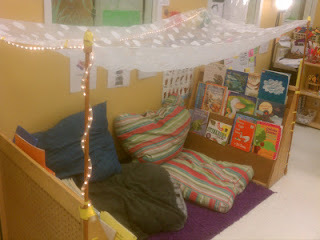 Every school should be so lucky to have a principal like Jim Bailey, but many don't even have programs to eliminate to find money for classroom libraries.
Every school should be so lucky to have a principal like Jim Bailey, but many don't even have programs to eliminate to find money for classroom libraries.
But as my mom always said -- Where there's a will, there's a way.
My local thrift shop has piles of gently used books, often for less than a dollar. There are similar book bargains nationwide at Goodwill stores. Bernie's Book Bank is a literacy initiative that distributes free new and used books to schools in need throughout Chicago and the surrounding suburbs. And public libraries often have used book sales where books can be purchased at super low prices. With a little digging, free and low-cost books can be found!
I'd like to help two classrooms! If you are a middle grade teacher or know of one with a classroom in need of books, please leave a comment below. Two classrooms will be randomly chosen to each receive a copy of my newest middle grade novel, Ethan Marcus Stands Up. (U.S. addresses only.) Good luck!
Michele Weber Hurwitz is the author of four middle grade novels, from Penguin Random House/Wendy Lamb Books, and Simon and Schuster/Aladdin. More on Michele at micheleweberhurwitz.com.
I read this quote in a post on Nerdy Book Club by an elementary school principal in Michigan, Jim Bailey, who has made it a priority to have well-stocked libraries in each and every classroom. As we're talking about going back to school this month on Smack Dab -- and the often-asked question authors get when we visit -- where do you get your ideas? -- it struck me how Bailey's idea for getting books into classrooms is nothing short of brilliant.
Bailey felt there was a direct link between classroom libraries and reading motivation, reading achievement, and reading engagement, so he went through his budget line by line and asked himself, "Is this program or resource better at raising student achievement than putting a book in a student's hand? If the answer was no, then I had just found money to support classroom libraries."

In fact, Bailey was able to find thousands of dollars in his budget by eliminating items such as purchasing the Accelerated Reader program and its prize incentives, as well as buying workbooks that he felt contained pages and pages of busy work. Then, at a staff training session prior to the first day of school, Bailey gave each teacher a $100 Barnes and Noble gift card to spend on books for their classroom (plus a $5 card for coffee), and the entire group took a field trip to B&N.
Several teachers cried, they were so excited, Bailey said, and many texted him photos of the books they were buying. He said that this decision completely changed the culture at his school. They have committed to reading -- real reading -- not comprehension quizzes or endless worksheets or scripted lessons. "We were showing what we truly valued with our time and money. Our students!" he said.
 Every school should be so lucky to have a principal like Jim Bailey, but many don't even have programs to eliminate to find money for classroom libraries.
Every school should be so lucky to have a principal like Jim Bailey, but many don't even have programs to eliminate to find money for classroom libraries.But as my mom always said -- Where there's a will, there's a way.
My local thrift shop has piles of gently used books, often for less than a dollar. There are similar book bargains nationwide at Goodwill stores. Bernie's Book Bank is a literacy initiative that distributes free new and used books to schools in need throughout Chicago and the surrounding suburbs. And public libraries often have used book sales where books can be purchased at super low prices. With a little digging, free and low-cost books can be found!
I'd like to help two classrooms! If you are a middle grade teacher or know of one with a classroom in need of books, please leave a comment below. Two classrooms will be randomly chosen to each receive a copy of my newest middle grade novel, Ethan Marcus Stands Up. (U.S. addresses only.) Good luck!
Michele Weber Hurwitz is the author of four middle grade novels, from Penguin Random House/Wendy Lamb Books, and Simon and Schuster/Aladdin. More on Michele at micheleweberhurwitz.com.
Published on August 14, 2018 05:00
August 13, 2018
What Do I Know To Be True? by Chris Tebbetts
When I think about the difference between the writer I am today and the writer I was in my own school days (he said, ham-handedly shoe horning his blog post into this month’s topic :-), I’d say that one of the big differences is my relationship to revision. Like a lot of the students I meet these days at author events and school visits, I used to want my my first drafts to also be my last drafts. I wanted to write the book report, or story, or whatever it was once through and be done with it.
But of course, we all know that’s not how it works. Writing, as they say, is rewriting. And the cool thing about growing into my own adult relationship with that unavoidable truth, is that I’ve come to see how much easier, and even more fun, revision can be as compared to drafting, and to filling those blank pages with ideas, sentences, words…or anything at all!
The thing I (truthfully) say to kids about revision is that, for me, it’s a bit like I’ve spent all this time creating my puzzle pieces (i.e., my first draft), and now I can really start to play with them—moving them around, rearranging things, and pulling everything into one big (hopefully) cohesive picture. I suppose I run the risk of being seen as a big geek by calling that “the fun part,” but hey, I’ll take it.
There are, of course, endless tips and tricks to be shared in the topic of revision, but I’ll limit myself to just one here. It’s a question I ask myself all the time, once I have a first draft down and as I’m trying to figure out where to go next.
WHAT DO I KNOW TO BE TRUE?
This can apply to any aspect of the story I’m working on. What do I know to be true about this scene, this character, this narrative arc, this conflict…? The thing I like about it is that there's no way to not have an answer at any given moment. It’s an immediately achievable thing. And maybe it takes me all the way back to my very basics: I know that my character comes in at the beginning of the scene, and I know he leaves at the end. Period. Okay, well if that’s all I really know, even if that’s less than I wish I knew, it is an honest answer, and it’s a necessary next step in figuring out the rest.
Or, say, What do I know to be true of my character? Maybe I haven’t figured out what’s motivating that sudden road trip of his. But I know he loves his car, and I know he’s fifteen pounds overweight. Sometimes the details that don’t feel important in the first-drafting phase get mysteriously promoted by virtue of having shown up. They then find their way more deeply into the story by virtue of being true—if that’s what they ultimately are. True, as in, true to the character, true to the intention of the piece, true to the needs of the story.
One more version of this can be the way I edit a scene or a chapter. Instead of what do I know to be true…. What do I know to feel right as I read through what I have? Which sentences, which paragraphs are ringing authentically for me, or making me feel something, or just feel correct in whatever way? As an exercise, I’ll take a passage of text, cut everything else out (i.e., everything that’s not ringing true for me), and start rewriting from there. However disjointed the result is, it gives me a page, or a paragraph, or a sentence of honest bedrock from which to work.
Sometimes, the idea in revision is to simply keep moving, keep writing, keep revising, until the answers begin to present themselves. And for me, this has been one way to make sure that happens.
Happy rest of the summer to everyone! Current situation....
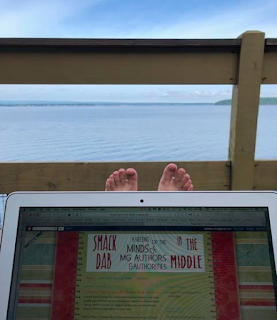
But of course, we all know that’s not how it works. Writing, as they say, is rewriting. And the cool thing about growing into my own adult relationship with that unavoidable truth, is that I’ve come to see how much easier, and even more fun, revision can be as compared to drafting, and to filling those blank pages with ideas, sentences, words…or anything at all!
The thing I (truthfully) say to kids about revision is that, for me, it’s a bit like I’ve spent all this time creating my puzzle pieces (i.e., my first draft), and now I can really start to play with them—moving them around, rearranging things, and pulling everything into one big (hopefully) cohesive picture. I suppose I run the risk of being seen as a big geek by calling that “the fun part,” but hey, I’ll take it.
There are, of course, endless tips and tricks to be shared in the topic of revision, but I’ll limit myself to just one here. It’s a question I ask myself all the time, once I have a first draft down and as I’m trying to figure out where to go next.
WHAT DO I KNOW TO BE TRUE?
This can apply to any aspect of the story I’m working on. What do I know to be true about this scene, this character, this narrative arc, this conflict…? The thing I like about it is that there's no way to not have an answer at any given moment. It’s an immediately achievable thing. And maybe it takes me all the way back to my very basics: I know that my character comes in at the beginning of the scene, and I know he leaves at the end. Period. Okay, well if that’s all I really know, even if that’s less than I wish I knew, it is an honest answer, and it’s a necessary next step in figuring out the rest.
Or, say, What do I know to be true of my character? Maybe I haven’t figured out what’s motivating that sudden road trip of his. But I know he loves his car, and I know he’s fifteen pounds overweight. Sometimes the details that don’t feel important in the first-drafting phase get mysteriously promoted by virtue of having shown up. They then find their way more deeply into the story by virtue of being true—if that’s what they ultimately are. True, as in, true to the character, true to the intention of the piece, true to the needs of the story.
One more version of this can be the way I edit a scene or a chapter. Instead of what do I know to be true…. What do I know to feel right as I read through what I have? Which sentences, which paragraphs are ringing authentically for me, or making me feel something, or just feel correct in whatever way? As an exercise, I’ll take a passage of text, cut everything else out (i.e., everything that’s not ringing true for me), and start rewriting from there. However disjointed the result is, it gives me a page, or a paragraph, or a sentence of honest bedrock from which to work.
Sometimes, the idea in revision is to simply keep moving, keep writing, keep revising, until the answers begin to present themselves. And for me, this has been one way to make sure that happens.
Happy rest of the summer to everyone! Current situation....

Published on August 13, 2018 05:58
August 12, 2018
I Dreamt I Had an Idea...by Darlene Beck Jacobson
I am the kind of person who rarely remembers her dreams. I can wake up after a great dream and try desperately to capture the threads before I get up, often to no avail. So, imagine my surprise, my astonishment, my luck to have a dream about my next book.
Back in May, I'd finished all my writing projects and had spend days wondering what I was going to write about next. No ideas popped into my head, everything I jotted down seemed lame or didn't interest me. Then one morning I woke up with a gift. A writing miracle for this sleeper with the fleeting dreams.
I had a title, a main character, the basic premise and the format for telling the story in my head as I opened my eyes. I also had dozens of words/chapter titles swimming into my thoughts to go along with this. Before I hit the shower, I raced for a notepad and scribbled down everything I'd been reciting over and over again so as not to forget. It wasn't until I filled two pages of a legal pad that I felt secure enough to wash my face and get on with the day. A day filled with excitement and gratitude, and a prayer of thanks.

Writing ideas come from everywhere, and sometimes they are a gift already opened, waiting to be received.
Back in May, I'd finished all my writing projects and had spend days wondering what I was going to write about next. No ideas popped into my head, everything I jotted down seemed lame or didn't interest me. Then one morning I woke up with a gift. A writing miracle for this sleeper with the fleeting dreams.
I had a title, a main character, the basic premise and the format for telling the story in my head as I opened my eyes. I also had dozens of words/chapter titles swimming into my thoughts to go along with this. Before I hit the shower, I raced for a notepad and scribbled down everything I'd been reciting over and over again so as not to forget. It wasn't until I filled two pages of a legal pad that I felt secure enough to wash my face and get on with the day. A day filled with excitement and gratitude, and a prayer of thanks.

Writing ideas come from everywhere, and sometimes they are a gift already opened, waiting to be received.
Published on August 12, 2018 06:00
August 11, 2018
Apologies from a Once-Wannabe Teacher
from Jody Feldman
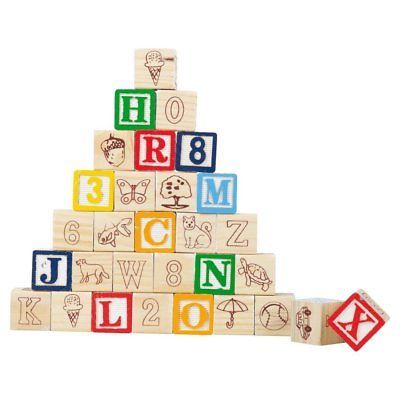 Dear Jeff and Mike,I owe you a decades-old apology for subjecting you to my teacher phase. You may not even remember. I was 9 years old to your 7 and 4 and, that summer, I had apparently become enamored with teaching. Either that, or I’d had enough of those endless summer days and was looking for some mental stimulation. Maybe I had come across an old homework sheet or maybe you had been building towers with our alphabet blocks. Whatever the spark, I was able to fill an hour or two by creating, if memory serves me, a lesson plan of workbook pages and blackboard exercises.
Dear Jeff and Mike,I owe you a decades-old apology for subjecting you to my teacher phase. You may not even remember. I was 9 years old to your 7 and 4 and, that summer, I had apparently become enamored with teaching. Either that, or I’d had enough of those endless summer days and was looking for some mental stimulation. Maybe I had come across an old homework sheet or maybe you had been building towers with our alphabet blocks. Whatever the spark, I was able to fill an hour or two by creating, if memory serves me, a lesson plan of workbook pages and blackboard exercises.
When I’d prepared as well as a 9 year old could, I sat you in front of me, trying to figure out how to get you to do the work. I’m sure you humored me for a few minutes before you got up to run around or until, in frustration, I uttered, “Class dismissed.” I realized you would not be learning from me that day. This may have been the first and last time I considering going into education.
And yet, peripherally, here I am, excited to start a new year of school visits. It’s different when you understand exactly what you have to offer all those kiddos. And it’s so much more fulfilling when you’ve developed a deep enthusiasm for talking about reading and writing, joy and frustration, rejections and successes, and rewriting, rewriting, rewriting. Oh, and about ideas and inspiration. My answer to that most-asked question, this picture.
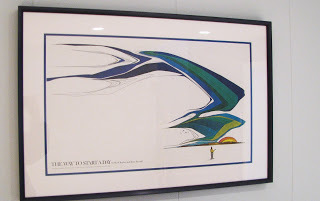 Explanation is included in presentations.
Explanation is included in presentations.
Back to that day, all those years ago, when I abandoned my teacher aspirations forever, I didn’t stop to thank you for sending my career in another direction. While I may not have the mettle to be a day-in, day-out teacher, a favorite part of my career—second only to the creative high I get when I latch onto a new idea—is popping in to schools and spending the day talking and, yes, teaching. And this may never have happened if you’d stayed and humored me.
Love,
Your sister, Jody
 Dear Jeff and Mike,I owe you a decades-old apology for subjecting you to my teacher phase. You may not even remember. I was 9 years old to your 7 and 4 and, that summer, I had apparently become enamored with teaching. Either that, or I’d had enough of those endless summer days and was looking for some mental stimulation. Maybe I had come across an old homework sheet or maybe you had been building towers with our alphabet blocks. Whatever the spark, I was able to fill an hour or two by creating, if memory serves me, a lesson plan of workbook pages and blackboard exercises.
Dear Jeff and Mike,I owe you a decades-old apology for subjecting you to my teacher phase. You may not even remember. I was 9 years old to your 7 and 4 and, that summer, I had apparently become enamored with teaching. Either that, or I’d had enough of those endless summer days and was looking for some mental stimulation. Maybe I had come across an old homework sheet or maybe you had been building towers with our alphabet blocks. Whatever the spark, I was able to fill an hour or two by creating, if memory serves me, a lesson plan of workbook pages and blackboard exercises.When I’d prepared as well as a 9 year old could, I sat you in front of me, trying to figure out how to get you to do the work. I’m sure you humored me for a few minutes before you got up to run around or until, in frustration, I uttered, “Class dismissed.” I realized you would not be learning from me that day. This may have been the first and last time I considering going into education.
And yet, peripherally, here I am, excited to start a new year of school visits. It’s different when you understand exactly what you have to offer all those kiddos. And it’s so much more fulfilling when you’ve developed a deep enthusiasm for talking about reading and writing, joy and frustration, rejections and successes, and rewriting, rewriting, rewriting. Oh, and about ideas and inspiration. My answer to that most-asked question, this picture.
 Explanation is included in presentations.
Explanation is included in presentations.Back to that day, all those years ago, when I abandoned my teacher aspirations forever, I didn’t stop to thank you for sending my career in another direction. While I may not have the mettle to be a day-in, day-out teacher, a favorite part of my career—second only to the creative high I get when I latch onto a new idea—is popping in to schools and spending the day talking and, yes, teaching. And this may never have happened if you’d stayed and humored me.
Love,
Your sister, Jody
Published on August 11, 2018 04:00
August 8, 2018
Just When I Thought I'd Graduated.....Jane Kelley
It's back to school for me.
I thought I had "graduated." Surely after writing for years and having many novels published, writing the next one should be easy. Or if not easy, then easier, right?
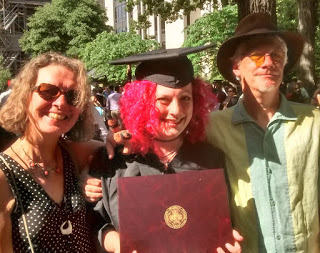 (Actually this is my daughter's college graduation.)Wrong.
(Actually this is my daughter's college graduation.)Wrong.
This isn't just because of a common misconception.
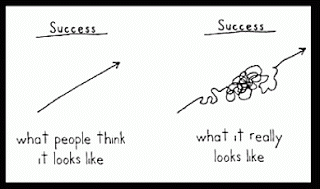
Writing a novel is messy because the creative process is incomprehensible. Whether you are a plotter or a pantser, I guarantee that your best writing will surprise you. If the reader marvels at how you came up with that fresh idea, then probably you do too.
Does that mean that we are forever doomed to being a new kid with lots to learn? Where's the bathroom? What are the teacher's pet peeves? Who's the bully? Who will be your friend?
Yes. Every novel presents its own challenges. Every novel requires you to learn how to write all over again. I remember, shortly after my first novel was published, being devastated when I heard Katherine Paterson say that. (Yes, KATHERINE PATERSON.)
Can't I learn from any of my mistakes? I've made so many. Aren't they good for something?
I sure hope so. Today, I stare at Draft Three of Version Two. My goal was to write a humor MG novel. Somehow or other it's become a gritty, poignant examination of what it means to dream. To be honest, I don't know what to do with it....except start over.
So it's back to school for me.
Actually a few lessons are still relevant.
1. Show up at your desk. There's no substitute for doing the work.
2. Lay down a foundation. Those beautifully surprising inspirations need to attach to a structure.
3. Have confidence. Students who are told they're smart do better at tests.
4. Find ways to have fun.
Yes I need to learn new things. But I know I can. Starting school again just means I have another chance.
I thought I had "graduated." Surely after writing for years and having many novels published, writing the next one should be easy. Or if not easy, then easier, right?
 (Actually this is my daughter's college graduation.)Wrong.
(Actually this is my daughter's college graduation.)Wrong.This isn't just because of a common misconception.

Writing a novel is messy because the creative process is incomprehensible. Whether you are a plotter or a pantser, I guarantee that your best writing will surprise you. If the reader marvels at how you came up with that fresh idea, then probably you do too.
Does that mean that we are forever doomed to being a new kid with lots to learn? Where's the bathroom? What are the teacher's pet peeves? Who's the bully? Who will be your friend?
Yes. Every novel presents its own challenges. Every novel requires you to learn how to write all over again. I remember, shortly after my first novel was published, being devastated when I heard Katherine Paterson say that. (Yes, KATHERINE PATERSON.)
Can't I learn from any of my mistakes? I've made so many. Aren't they good for something?
I sure hope so. Today, I stare at Draft Three of Version Two. My goal was to write a humor MG novel. Somehow or other it's become a gritty, poignant examination of what it means to dream. To be honest, I don't know what to do with it....except start over.
So it's back to school for me.
Actually a few lessons are still relevant.
1. Show up at your desk. There's no substitute for doing the work.
2. Lay down a foundation. Those beautifully surprising inspirations need to attach to a structure.
3. Have confidence. Students who are told they're smart do better at tests.
4. Find ways to have fun.
Yes I need to learn new things. But I know I can. Starting school again just means I have another chance.
Published on August 08, 2018 04:00
August 5, 2018
Treasure Chest of Ideas by Deborah Lytton
I think of ideas as precious gems in the treasure chest of my imagination. My ideas come from different places. Some are from observations of real life and some are from my dreams. They come from thoughts of "what if" or "how." Perhaps they come from a place of powerful emotion like joy or pain. Other times, they are part of a message I want to share with readers.
My novel JANE IN BLOOM was inspired by an interview I watched on a news program years ago about children who felt invisible in families where another child needed more attention. I wanted to tell the story of a forgotten sister who was invisible to her family. I thought readers might relate to a character who needed to be seen and heard. The story grew from there. My newest series, RUBY STARR, was inspired by my daughter's request to write a funny story for her. She was in fifth grade at the time, so I started with a fifth grade student who loved reading and viewed the world through the pages in a book. I thought there might be readers who would see themselves in Ruby. The rest of the series came out of that character sketch.
If you find yourself running out of ideas, look into your own memories to see if there is an experience that could give rise to a story. Is there a dream you had for yourself when you were in elementary school or middle school that could be the center of a book? If this doesn't help, ask yourself what you would want to read if you were ten years old. Or where you would want to visit if only for one single night. You can even ask yourself "what if" questions to see if they create inspiration for you.
Your ideas are infinite. Trust in your imagination and keep writing!
My novel JANE IN BLOOM was inspired by an interview I watched on a news program years ago about children who felt invisible in families where another child needed more attention. I wanted to tell the story of a forgotten sister who was invisible to her family. I thought readers might relate to a character who needed to be seen and heard. The story grew from there. My newest series, RUBY STARR, was inspired by my daughter's request to write a funny story for her. She was in fifth grade at the time, so I started with a fifth grade student who loved reading and viewed the world through the pages in a book. I thought there might be readers who would see themselves in Ruby. The rest of the series came out of that character sketch.
If you find yourself running out of ideas, look into your own memories to see if there is an experience that could give rise to a story. Is there a dream you had for yourself when you were in elementary school or middle school that could be the center of a book? If this doesn't help, ask yourself what you would want to read if you were ten years old. Or where you would want to visit if only for one single night. You can even ask yourself "what if" questions to see if they create inspiration for you.
Your ideas are infinite. Trust in your imagination and keep writing!
Published on August 05, 2018 21:56
August 3, 2018
Where Writing Ideas Come From, or, What I Did Over Summer Vacation
At school visits, I always kind of marvel over that question, "Where do you get your ideas?" For me, the world -- life -- is bursting with ideas! Finding them is not my problem; choosing -- and sticking to -- just one at a time is! But that's really a discussion for another day.
So today, for the curious, I'll share with you where some of the ideas have come from for some of my books, and also share with you some new ideas that have found me this summer.
WHERE WRITING IDEAS COME FROM:
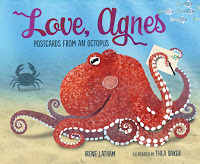 coming Oct. 1 with
coming Oct. 1 with
illus. by Thea Baker1. BOOKS - Like most authors, I'm an avid reader. So many of my ideas come as a result of reading! My next release LOVE, AGNES: POSTCARDS FROM AN OCTOPUS was inspired by the adult memoir THE SOUL OF AN OCTOPUS by Sy Montgomery. It started in me an octopus obsession! And all of my
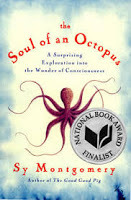 obsessions eventually wind up in my writing. Please note: if you want to broaden yourself as a writer (and person!), broaden your reading habits. Read things you wouldn't normally pick up: say, a mechanics magazine or a book about pig farming or 18th century medical techniques. Who knows what ideas will find you?
obsessions eventually wind up in my writing. Please note: if you want to broaden yourself as a writer (and person!), broaden your reading habits. Read things you wouldn't normally pick up: say, a mechanics magazine or a book about pig farming or 18th century medical techniques. Who knows what ideas will find you?
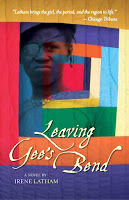 2. ART - There's no way around it: art inspires art. Which is why I visit art museums and attend concerts and see movies and attend plays and look at photographs online. My first middle grade novel was inspired the the Quilts of Gee's Bend exhibit at the Whitney Museum. Each year during National Poetry Month I present a poem a day on my blog in a series called ARTSPEAK!, each year on a different art them. (2018 was ARTSPEAK! Harlem Renaissance.) Earlier this summer I visited The Original Makers: Folk Art from the Cargo Collection at Birmingham Museum of Art and was fascinated by these wood carvings of Bible stories. Who knows, maybe I will have a character in a new book who carves stories out
2. ART - There's no way around it: art inspires art. Which is why I visit art museums and attend concerts and see movies and attend plays and look at photographs online. My first middle grade novel was inspired the the Quilts of Gee's Bend exhibit at the Whitney Museum. Each year during National Poetry Month I present a poem a day on my blog in a series called ARTSPEAK!, each year on a different art them. (2018 was ARTSPEAK! Harlem Renaissance.) Earlier this summer I visited The Original Makers: Folk Art from the Cargo Collection at Birmingham Museum of Art and was fascinated by these wood carvings of Bible stories. Who knows, maybe I will have a character in a new book who carves stories out
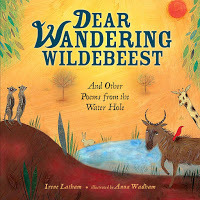 illus. by Anna Wadhamof wood! My book DEAR WANDERING WILDEBEEST was inspired by Greg du Toit's amazing photographs, which I saw when poking around National Geographic's website. And earlier this summer I took a pine needle basketmaking class AND a painting (sunflowers!) class. Ideas, ideas, ideas!
illus. by Anna Wadhamof wood! My book DEAR WANDERING WILDEBEEST was inspired by Greg du Toit's amazing photographs, which I saw when poking around National Geographic's website. And earlier this summer I took a pine needle basketmaking class AND a painting (sunflowers!) class. Ideas, ideas, ideas!
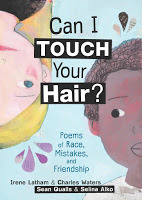 illus. by Sean Qualls
illus. by Sean Qualls
and Selina Alko3. CURRENT EVENTS - I am not much of a newshound or TV person, but I do keep up with a little of what's going on in the world. Often this has inspired my books, like CAN I TOUCH YOUR HAIR? Poems of Race,
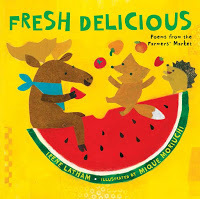 illus. by Mique MoriuchiMistakes and Friendship (with Charles Waters). Quite a few of my forthcoming books are similarly inspired -- including WILD PEACE, which was just announced at
Publisher's Weekly
.
illus. by Mique MoriuchiMistakes and Friendship (with Charles Waters). Quite a few of my forthcoming books are similarly inspired -- including WILD PEACE, which was just announced at
Publisher's Weekly
.
And it's not always big societal current events that captivate my imagination -- sometimes it's simpler, seasonal joys, like FRESH DELICIOUS, which celebrates the summer farmers' market. Take some time and think about how you're spending your time... what are your daily habits and pleasures? There may be a book idea in there!
4. HISTORY - Some of my books are inspired by my personal
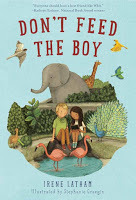 illus. by Stephanie
illus. by Stephanie
Graeginhistory, like DON'T FEED THE BOY, which is set at a contemporary zoo and allowed me to draw upon my former aspirations to be a zoo vet and my time as a teen volunteer at the Birmingham Zoo.
Others are inspired by stories I uncover, like the forthcoming MEET MISS FANCY, which centers on a real-life elephant who lived in Birmingham from 1913-1934. I find these stories by reading and listening and visiting historical museums and attending historical programming.
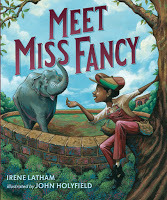 coming January 2019
coming January 2019
with illus. by John
Holyfield
This summer, as a way to get to know our new home (we moved this past December), we've visited 4 local historical museums. At the Ashville Museum and Archives, I came away with a calendar celebrating the county's bicentennial, and oh boy, was it packed with ideas just waiting to be fleshed out! I dog-eared quite a few pages for further investigation. You just never know what stories might be hiding in your own backyard.
Here's the thing: you can only be inspired if you lead an inspiring life -- which means you've got to get out in the world and live a life worth writing about. I promise, all the stories are right there waiting for you. Go!
--------------
Find out more about Irene Latham and her books at irenelatham.com.
So today, for the curious, I'll share with you where some of the ideas have come from for some of my books, and also share with you some new ideas that have found me this summer.
WHERE WRITING IDEAS COME FROM:
 coming Oct. 1 with
coming Oct. 1 withillus. by Thea Baker1. BOOKS - Like most authors, I'm an avid reader. So many of my ideas come as a result of reading! My next release LOVE, AGNES: POSTCARDS FROM AN OCTOPUS was inspired by the adult memoir THE SOUL OF AN OCTOPUS by Sy Montgomery. It started in me an octopus obsession! And all of my
 obsessions eventually wind up in my writing. Please note: if you want to broaden yourself as a writer (and person!), broaden your reading habits. Read things you wouldn't normally pick up: say, a mechanics magazine or a book about pig farming or 18th century medical techniques. Who knows what ideas will find you?
obsessions eventually wind up in my writing. Please note: if you want to broaden yourself as a writer (and person!), broaden your reading habits. Read things you wouldn't normally pick up: say, a mechanics magazine or a book about pig farming or 18th century medical techniques. Who knows what ideas will find you? 2. ART - There's no way around it: art inspires art. Which is why I visit art museums and attend concerts and see movies and attend plays and look at photographs online. My first middle grade novel was inspired the the Quilts of Gee's Bend exhibit at the Whitney Museum. Each year during National Poetry Month I present a poem a day on my blog in a series called ARTSPEAK!, each year on a different art them. (2018 was ARTSPEAK! Harlem Renaissance.) Earlier this summer I visited The Original Makers: Folk Art from the Cargo Collection at Birmingham Museum of Art and was fascinated by these wood carvings of Bible stories. Who knows, maybe I will have a character in a new book who carves stories out
2. ART - There's no way around it: art inspires art. Which is why I visit art museums and attend concerts and see movies and attend plays and look at photographs online. My first middle grade novel was inspired the the Quilts of Gee's Bend exhibit at the Whitney Museum. Each year during National Poetry Month I present a poem a day on my blog in a series called ARTSPEAK!, each year on a different art them. (2018 was ARTSPEAK! Harlem Renaissance.) Earlier this summer I visited The Original Makers: Folk Art from the Cargo Collection at Birmingham Museum of Art and was fascinated by these wood carvings of Bible stories. Who knows, maybe I will have a character in a new book who carves stories out  illus. by Anna Wadhamof wood! My book DEAR WANDERING WILDEBEEST was inspired by Greg du Toit's amazing photographs, which I saw when poking around National Geographic's website. And earlier this summer I took a pine needle basketmaking class AND a painting (sunflowers!) class. Ideas, ideas, ideas!
illus. by Anna Wadhamof wood! My book DEAR WANDERING WILDEBEEST was inspired by Greg du Toit's amazing photographs, which I saw when poking around National Geographic's website. And earlier this summer I took a pine needle basketmaking class AND a painting (sunflowers!) class. Ideas, ideas, ideas! illus. by Sean Qualls
illus. by Sean Quallsand Selina Alko3. CURRENT EVENTS - I am not much of a newshound or TV person, but I do keep up with a little of what's going on in the world. Often this has inspired my books, like CAN I TOUCH YOUR HAIR? Poems of Race,
 illus. by Mique MoriuchiMistakes and Friendship (with Charles Waters). Quite a few of my forthcoming books are similarly inspired -- including WILD PEACE, which was just announced at
Publisher's Weekly
.
illus. by Mique MoriuchiMistakes and Friendship (with Charles Waters). Quite a few of my forthcoming books are similarly inspired -- including WILD PEACE, which was just announced at
Publisher's Weekly
.And it's not always big societal current events that captivate my imagination -- sometimes it's simpler, seasonal joys, like FRESH DELICIOUS, which celebrates the summer farmers' market. Take some time and think about how you're spending your time... what are your daily habits and pleasures? There may be a book idea in there!
4. HISTORY - Some of my books are inspired by my personal
 illus. by Stephanie
illus. by StephanieGraeginhistory, like DON'T FEED THE BOY, which is set at a contemporary zoo and allowed me to draw upon my former aspirations to be a zoo vet and my time as a teen volunteer at the Birmingham Zoo.
Others are inspired by stories I uncover, like the forthcoming MEET MISS FANCY, which centers on a real-life elephant who lived in Birmingham from 1913-1934. I find these stories by reading and listening and visiting historical museums and attending historical programming.
 coming January 2019
coming January 2019with illus. by John
Holyfield
This summer, as a way to get to know our new home (we moved this past December), we've visited 4 local historical museums. At the Ashville Museum and Archives, I came away with a calendar celebrating the county's bicentennial, and oh boy, was it packed with ideas just waiting to be fleshed out! I dog-eared quite a few pages for further investigation. You just never know what stories might be hiding in your own backyard.
Here's the thing: you can only be inspired if you lead an inspiring life -- which means you've got to get out in the world and live a life worth writing about. I promise, all the stories are right there waiting for you. Go!
--------------
Find out more about Irene Latham and her books at irenelatham.com.
Published on August 03, 2018 03:30
August 1, 2018
Where Do You Get Your Ideas? By Ann Haywood Leal
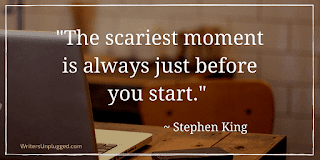
A writing idea sometimes shows itself to me like a sliver of light under a door at the end of a long hallway. I might mull it over for a while and see if it grows. But sometimes a new idea hits me hard, bulldozing me to the ground, and I know I have to write about it. Those are usually the types of ideas that hang around, sticking to me, until I finally build a story around it.
I don't believe that writing ideas are as elusive as they try to appear. Louis L'Amour once said, "Ideas are everywhere. There are ideas enough in any daily newspaper to keep a man writing for years. Ideas are all about us, in the people we meet, the way we live, the way we travel, and how we think about things."
One thing that is important for me is to keep myself open to new ideas -not just at the brewing, beginning stages of a story or book, but throughout my writing. This is what rounds out my characters as I go, and what fills up my story, as a whole.
A lot of that is paying attention to the small nuances of life. I love to notice little quirks in strangers, and put them into my story. How do I know if they're worthy of the story? They hang around in my head for a good while. It's that phrase that you can't stop thinking about. That phrase might become a line for one of your characters, or even a first line for your story. You might hear someone say something in a crowded grocery store, in line at a restroom, or waiting for a table at a restaurant. Maybe it makes you wonder, or smile, or cringe, and you have to write it down. Then definitely do go write it down.
Each year as August begins, I can almost start to taste a new school year. Schools are idea mines, because there are so many universal feelings with which readers of all ages will connect. So as the air begins to cool down and the Fall air hovers in the distance, sit back and sniff out some good ideas.

Published on August 01, 2018 23:00
Smack Dab News
Michele Weber Hurwitz will be teaching a five-week online class with The Writing Barn, focusing on the fundamentals of middle grade fiction. The class will be taught completely online in a fun "Brady Bunch" screen format through the Barn's Zoom virtual classroom.
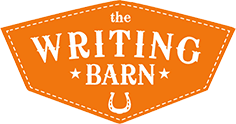 The sessions will be held each week on Mondays from 7 to 9 p.m. CST, beginning September 17 and ending October 15. The course will dig deep into the areas of setting, plot, character, voice, dialogue, conflict, theme, and pacing, utilizing a combination of lecture, discussion, writing exercises, group critique, and Q&A. Participants can work on an existing manuscript or start something new during the class. Click here for more info and to register. All of the sessions will help build technique and offer suggested guidelines for tackling revisions, rough spots, and writer's block. Michele is the author of four middle grade novels, published by Penguin Random House and Simon & Schuster. More on Michele at micheleweberhurwitz.com.
The sessions will be held each week on Mondays from 7 to 9 p.m. CST, beginning September 17 and ending October 15. The course will dig deep into the areas of setting, plot, character, voice, dialogue, conflict, theme, and pacing, utilizing a combination of lecture, discussion, writing exercises, group critique, and Q&A. Participants can work on an existing manuscript or start something new during the class. Click here for more info and to register. All of the sessions will help build technique and offer suggested guidelines for tackling revisions, rough spots, and writer's block. Michele is the author of four middle grade novels, published by Penguin Random House and Simon & Schuster. More on Michele at micheleweberhurwitz.com.
---------------------------
Also:
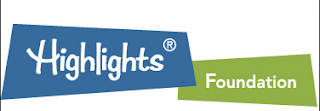
An intimate workshop for middle grade and young adult authors looking to explore or revise and polish a work in progress.GETTING YOUR MIDDLE GRADE AND YOUNG ADULT NOVEL UNSTUCK | NOVEMBER 4 – NOVEMBER 8, 2018Whether you’ve jotted down ideas for a novel but can’t get your story off the ground, you’re stuck in the middle of a draft with no idea of where to go next, or you’ve written most of the book but can’t figure out the ending, this workshop is designed to help! Two award-winning, New York Times best-selling authors--Chris Tebbetts and Julie Berry --along with their guest, author Hannah Barnaby, will share their writers’ toolbox for getting unstuck, with a focus on character development, plotting and outlining, revision, journaling, and improvisation/play.
Participants will receive an initial one-on-one critique as well as individual “ask the editor” meetings with our guest editor, Kate Prosswimmer of Sourcebooks, with time for revision and additional writing in between. Please include a five-page writing sample with your application. Accepted students will then be asked to submit 10-12 pages from a work in progress and a brief synopsis or story description for critique.
Click here for more info! Application deadline is September 15.
 The sessions will be held each week on Mondays from 7 to 9 p.m. CST, beginning September 17 and ending October 15. The course will dig deep into the areas of setting, plot, character, voice, dialogue, conflict, theme, and pacing, utilizing a combination of lecture, discussion, writing exercises, group critique, and Q&A. Participants can work on an existing manuscript or start something new during the class. Click here for more info and to register. All of the sessions will help build technique and offer suggested guidelines for tackling revisions, rough spots, and writer's block. Michele is the author of four middle grade novels, published by Penguin Random House and Simon & Schuster. More on Michele at micheleweberhurwitz.com.
The sessions will be held each week on Mondays from 7 to 9 p.m. CST, beginning September 17 and ending October 15. The course will dig deep into the areas of setting, plot, character, voice, dialogue, conflict, theme, and pacing, utilizing a combination of lecture, discussion, writing exercises, group critique, and Q&A. Participants can work on an existing manuscript or start something new during the class. Click here for more info and to register. All of the sessions will help build technique and offer suggested guidelines for tackling revisions, rough spots, and writer's block. Michele is the author of four middle grade novels, published by Penguin Random House and Simon & Schuster. More on Michele at micheleweberhurwitz.com.---------------------------
Also:

An intimate workshop for middle grade and young adult authors looking to explore or revise and polish a work in progress.GETTING YOUR MIDDLE GRADE AND YOUNG ADULT NOVEL UNSTUCK | NOVEMBER 4 – NOVEMBER 8, 2018Whether you’ve jotted down ideas for a novel but can’t get your story off the ground, you’re stuck in the middle of a draft with no idea of where to go next, or you’ve written most of the book but can’t figure out the ending, this workshop is designed to help! Two award-winning, New York Times best-selling authors--Chris Tebbetts and Julie Berry --along with their guest, author Hannah Barnaby, will share their writers’ toolbox for getting unstuck, with a focus on character development, plotting and outlining, revision, journaling, and improvisation/play.
Participants will receive an initial one-on-one critique as well as individual “ask the editor” meetings with our guest editor, Kate Prosswimmer of Sourcebooks, with time for revision and additional writing in between. Please include a five-page writing sample with your application. Accepted students will then be asked to submit 10-12 pages from a work in progress and a brief synopsis or story description for critique.
Click here for more info! Application deadline is September 15.
Published on August 01, 2018 05:00
July 28, 2018
FREEDOM!!!
By Charlotte Bennardo
 photo courtesy of Philosophical Disquisitions
photo courtesy of Philosophical Disquisitions
The July theme is freedom- from writing habits. Therefore, I declare my independence from writing magazines.
Don't get me wrong, I like perusing through Publishers Weekly, and checking out articles in Writer's Digest. I had subscriptions to numerous writing magazines. When the last issue of my Publishers Weekly arrives though, I won't be renewing.
Why?
Because these magazines tend to be about the 'big' stars of writing. Oh sure, they have the occasional breakout debut author, but still the focus is on 'big success.' Most writers are midlist, and we are generally ignored. Is our writing less worthy? Not that I can see, yet we're invisible. "Everyone loves a winner" seems to be the theme, and while I'm not one to hand out participation trophies, as a midlist author, these magazines depress me. If they were revealing the secret of how to sell a million copies, hook a top agent, or reel in that Big 5 editor, that would be different. Yes, they offer this advice, but it's all generic and we midlist authors have heard it over and over. And I wonder if these mega selling authors subscribe to these writing magazines, or is it just us, lower on the ladder of success writers who subscribe, wanting to see our names on the bestseller list?
Either way, I'm freeing up my mailbox, my desk, my credit card, and my recycle bin. If I get the urge, I'll read the copy in the library.
 photo courtesy of Philosophical Disquisitions
photo courtesy of Philosophical DisquisitionsThe July theme is freedom- from writing habits. Therefore, I declare my independence from writing magazines.
Don't get me wrong, I like perusing through Publishers Weekly, and checking out articles in Writer's Digest. I had subscriptions to numerous writing magazines. When the last issue of my Publishers Weekly arrives though, I won't be renewing.
Why?
Because these magazines tend to be about the 'big' stars of writing. Oh sure, they have the occasional breakout debut author, but still the focus is on 'big success.' Most writers are midlist, and we are generally ignored. Is our writing less worthy? Not that I can see, yet we're invisible. "Everyone loves a winner" seems to be the theme, and while I'm not one to hand out participation trophies, as a midlist author, these magazines depress me. If they were revealing the secret of how to sell a million copies, hook a top agent, or reel in that Big 5 editor, that would be different. Yes, they offer this advice, but it's all generic and we midlist authors have heard it over and over. And I wonder if these mega selling authors subscribe to these writing magazines, or is it just us, lower on the ladder of success writers who subscribe, wanting to see our names on the bestseller list?
Either way, I'm freeing up my mailbox, my desk, my credit card, and my recycle bin. If I get the urge, I'll read the copy in the library.
Published on July 28, 2018 08:09



